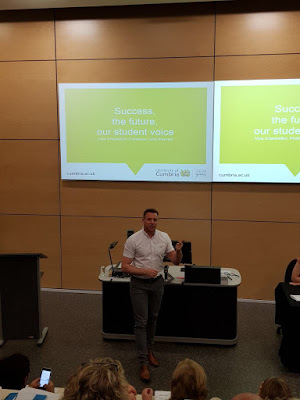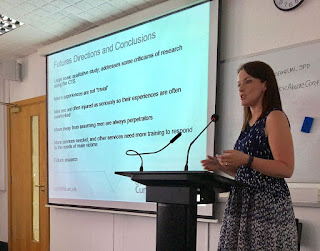Policing, Psychology, and the PEACE Interviewing Model
 |
| Rob Ewin |
Ok, so you find yourself in the Police, investigating crime, in all its weird and wonderful formats. What on earth does this have to do with psychology? Well, quite a lot. Forensic psychology has contributed to the large part of the way in which interviews are conducted with suspects and witnesses, how offenders are profiled, and crimes are investigated. This is a large part of the work which has been done over the years to improve the science behind investigations. One of the major developments, which now features in the large majority of criminal investigations is the PEACE interviewing model. Developed in the early 90's the model exists to provide a framework when interviewing and moves away from traditional methods of interviewing which focused on gaining a confession.
The PEACE model has five parts: Planning & Preparation, Engage & Explain, Account Clarification & Challenge, Closure and Evaluation. In using this model I have been able to better understand the accounts of both suspects and witnesses. When used correctly the model helps with the flow and structure of interviews. The planning of interviews is key. In suspect interviewing a large amount of preparation can go into the planning phase and this in turn assists in the engagement with suspects. Forewarned is forearmed! Unlike Police interviews seen on TV reality programmes, where Police Officers are seen to be challenging the suspects version of events, the engagement of the suspect prior to this is key to exposing potential lies later in the interviewing process. This style of interviewing was never designed to be about confessions, which in most suspect interviews never happens anyway. PEACE has been indoctrinated into the professional framework of law enforcement all over the world, this is largely thanks to the role of psychologists in researching the best and most appropriate ways to conduct interviews.
Where could research go from here? Already the PEACE model has been adopted and in some cases adapted to meet the needs of law enforcement. However, evaluative research around the models wider use with witnesses is more limited. This could be the potential avenue for research projects and work with victims to see how this approach could meet their needs. I would also suggest that there is an emphasis on the use of this model with suspects over witnesses, so gathering data from professionals could be another area for research. In both my capacity as a Detective and a PhD researcher I can see how there could be universal benefits from controlled trials, semi-structured interviews and perhaps even a combined project using photographic elicitation as a way to encourage memory. The choices are potentially endless and could provide the next big step for research, law enforcement and the wider work being conducted in relation to balancing the needs of justice to victims and witnesses.
Rob Ewin is one of our PhD students, his PhD is in vulnerability assessment in criminal investigation. He is also an A/Detective Sergeant with Cumbria Constabulary.


Comments
Post a Comment